It’s natural to look back at history and wonder, what if? What if Abraham Lincoln hadn’t been assassinated? What if Hitler had won the Second World War? What if African countries had remained untouched by colonialism?
If you’re interested in the alternative paths that history could have taken, this list has something for you—from nonfiction analyses to novels that reimagine the past and present with varying degrees of realism.
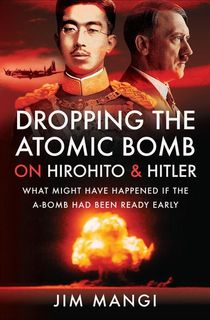
Dropping the Atomic Bomb on Hirohito & Hitler
Jim Mangi’s deeply researched alternative history analyzes how the Second World War could have been sharply altered had America developed the atomic bomb sooner. Mangi considers how the threat of the bomb may have modified the actions taken by Germany, Japan, and Russia during World War II. Beyond that, Mangi's speculation tracks the following decades, considering the course of a subsequent Cold War.
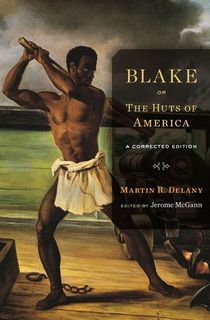
Blake; or, The Huts of America
Serially published in 1859, Blake; or, The Huts of America was written by an African American abolitionist just before the Civil War. Martin R. Delany was born to an enslaved father and a free mother in 1812, and raised as a free man in Pennsylvania. Delany would go on to complete formal medical training, and publish several works on the inequality that African Americans faced in the US. Among these was Blake.
Blake tells the story of a slave living in the South. After his wife is sold to a man in Cuba, he flees the plantation and arranges for his son to be taken North to avoid the same fate. Blake travels widely, intending to unite other enslaved people throughout North America and the Caribbean and create a free, independent Black state.
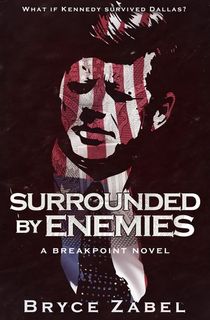
Surrounded by Enemies
The assassination of John F. Kennedy is one of the most divisive incidents in the history of the United States. Whether or not Lee Harvey Oswald acted alone is still a hotly contested conversation. Bryce Zabel’s novel offers an alternate path in history, one where President Kennedy survives the shooting in Dallas. And that's merely the beginning of the real story.
As Kennedy’s presidency continues, he finds himself besieged with scandal and worry. His numerous affairs, as well as his ailing health, start to catch up with him. As the walls begin to close in around Kennedy, he and his brother, Bobby, try to uncover the truth behind what may have happened on that grassy knoll.
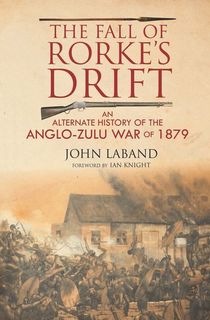
The Fall of Rorke's Drift
John Laband’s book reimagines Lord Carnarvon’s charge on the Zulu people in the early months of 1879. Rather than having the upper hand in the initial engagement, The Fall of Rorkes’ Drift explores what might’ve happened if Lord Chard’s assault at Rorke’s Drift hadn’t been a victory for the British.
Laband lays out a plausible alternate history for the bloody seven-month conflict. His immersive writing offers not only a recounting of potential events, but crafts various primary and secondary sources, such as letters, diary entries, newspaper articles, and reference lists.
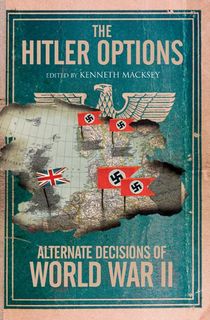
The Hitler Options
In Kenneth Macksey’s The Hitler Options, 10 military historians consider how the course of the Second World War could have been different across 10 essays. Some hypothesize that Hitler may have won the war, if he had perhaps focused the full force of his army on conquering England, rather than splitting his focus to the Soviet Union. Others consider if and how Allies may have brought the war to an end more quickly.
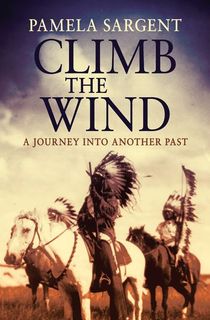
Climb the Wind
Climb the Wind explores what may have happened if, in the wake of the North’s Civil War victory, settlers were met with a united Indigenous force while trying to push West. Pamela Sargent looks at the potential strength of combined Native American forces after banding together under a Lakota chief. She also considers the American factors surrounding the Western expansion, as well as their potentially weakened militant forces. In this alternate history novel, the conflict quickly shifts from a war between the North and South to a full-scale war between settlers and Native Americans.
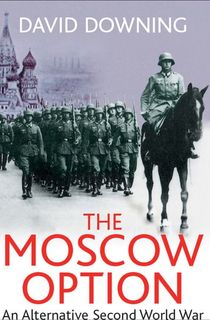
The Moscow Option
Largely considered to be one of Hitler’s greatest blunders during the course of the Second World War, The Moscow Option reimagines the outcome of the Third Reich’s Russian offensive. David Downing plots out what may have happened if Hitler’s army had won the Battle of Moscow.
In this scenario, the fall of the Soviet Union leads to the regroup and resurgence of global German offensives. But this hinges on a crucial turning point: Hitler is incapacitated by a coma, and his generals are calling all the shots.

The Plot Against America
Philip Roth’s alternate history examines the downfall of a once-inspirational figure into a puppet for the spread of fascism. At the start of the election cycle, it seems that Charles Lindbergh doesn’t stand a chance against the incumbent candidate, FDR. Just weeks out from the election, FDR appears to have the upper hand with both the electoral college and the popular vote.
But the fate of the United States takes a turn when Lindbergh is ultimately elected president in 1940. The Roths, a Jewish family living in Newark, New Jersey, are stunned as Lindbergh takes an isolationist approach to world affairs. It’s not long before antisemitism seems to grow stronger roots in the States, threatening the lives and livelihoods of the Jewish population.

Ruled Britannia
If the Spanish Armada hadn’t been blown off-course, perhaps the Duke of Parma’s army would’ve been successful in conquering England. Harry Turtledove’s Ruled Britannia imagines an England under the thumb of Spanish rule, with the once-mighty Queen Elizabeth I held captive in the Tower of London. In her place, sitting on the English throne, is King Philip II’s daughter, Isabella, and her husband, Albert.
A decade into the Spanish occupation, playwright William Shakespeare is brought into a plot to stir the people of London into an uprising against their invaders. Turtledove’s novel offers the reader an England nearing the turn of the century through the lens of a Spanish occupation, and places one of the most prolific playwrights in history at the center of a seditious plot.
This post is sponsored by Open Road Media. Thank you for supporting our partners, who make it possible for The Archive to continue publishing the history stories you love.


